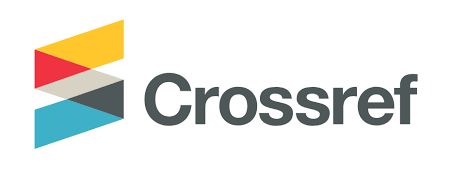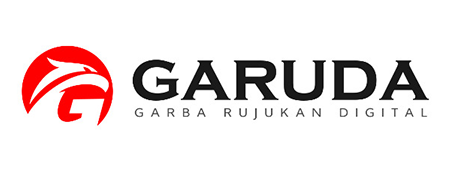ASSISTANCE FOR PARENTS TO INCREASE AWARENESS OF CHILDREN’S INDEPENDENT LEARNING AT HOME
Keywords:
Pendampingan, Orang Tua, Belajar MandiriAbstract
Learning independences is an important potential that children need to have. With independent learning, children will be able to carry out various activities to find their identity and guide their lives for the future. Through the learning process and the role of parents, children’s independence can emerge well if they are given good stimulus by their learning environment. The aims of this service activity are: 1) to provide parents with an understanding of their role in forming children’s independent learning; 2) to determine the learning independence of children in Dokabarat; 3) to provide solutions for parents who experience obstacles in increasing children’s independent learning.
Downloads
References
Alnajashi, Alaa, Alnajashi, S. and Alnajashi, Arwa (2023) ‘“I Like to Be Independent”: Experience of Visually Disabled Students with Online Learning in Saudi Arabia’, Turkish Online Journal of Educational Technology - TOJET, 22(4), pp. 1–10. Available at: https://ezproxy.msu.edu/login?url=https://search.ebscohost.com/login.aspx?direct=true&db=eric&AN=EJ1409826&site=ehost-live&scope=site.
Arifin, S. et al. (2020) ‘The effect of problem-based learning by cognitive style on critical thinking skills and students’ retention’, Journal of Technology and Science Education, 10(2), pp. 271–281. Available at: https://doi.org/10.3926/JOTSE.790.
Bogdanović, I.Z. et al. (2022) ‘The impact of using the modified Know-Want-Learn strategy in physics teaching on students’ metacognition’, South African Journal of Education, 42(4), pp. 1–14. Available at: https://doi.org/10.15700/saje.v42n4a2096.
Gao, P. (2014) ‘I Love to Learn, but I Hate to be Taught’, Journal of Education and Training Studies, 2(3), pp. 104–107. Available at: https://doi.org/10.11114/jets.v2i3.392.
Ginty, B.L. (2022) ‘Organizational Original Design: Parental Responsibility for Christian Education and Faith Development in the Home.’, Journal of Organizational and Educational Leadership, 8(1). Available at: https://eric.ed.gov/?id=EJ1364224%0Ahttps://files.eric.ed.gov/fulltext/EJ1364224.pdf.
Hachadurian, C., Perry, A. and Calhoun, S. (2022) ‘Preparing for the Post-University Transition: Supporting Homeless, Emancipated, Orphaned, and Other Independent Students’, College Student Affairs Journal, 40(3), pp. 40–53. Available at: https://doi.org/10.1353/csj.2022.0024.
Hujala, E., Vlasov, J. and Szecsi, T. (2017) ‘Parents’ and teachers’ perspectives on changes in childcare quality in the United States, Russia and Finland’, South African Journal of Childhood Education, 7(1), p. 10. Available at: https://doi.org/10.4102/sajce.v7i1.538.
Irwanto, I. (2023) ‘Journal of Technology and Science Education THINKING AND SCIENCE PROCESS SKILLS USING RESEARCH-’, Journal of Technology and Science Education, 13(1), pp. 23–35.
Jones, C. (2022) ‘The Purpose of Parents: School Personnel Perceptions of the Role of Parents in Secondary Schools’, School Community Journal, 32(1), pp. 85–104. Available at: http://www.schoolcommunitynetwork.org/SCJ.aspx.
Jumadi, J. et al. (2021) ‘The impact of problem-based learning with argument mapping and online laboratory on scientific argumentation skill’, International Journal of Evaluation and Research in Education, 10(1), pp. 16–23. Available at: https://doi.org/10.11591/ijere.v10i1.20593.
Kara, S. and Kucuk, T. (2023) ‘The Effects of Picture Dictionaries in Promoting Vocabulary Development of EFL Learners at Tertiary Level’, Novitas-ROYAL, 17(2), pp. 80–94. Available at: https://doi.org/10.5281/zenodo.10015826.
Kİmsesİz, F. (2024) ‘Reflections from Learners of English as a Foreign Language in a Multicultural Non-native Context’, 9(1), pp. 1–16. Available at: https://doi.org/10.35974/acuity.v9i1.2900.
Levinthal, C., Kuusisto, E. and Tirri, K. (2021) ‘Finnish and portuguese parents’ perspectives on the role of teachers in parent-teacher partnerships and parental engagement’, Education Sciences, 11(6). Available at: https://doi.org/10.3390/educsci11060306.
License, I. (2019) ‘ISSN 1648-3898 ISSN 2538-7138 EVALUATING THE IMPACTS OF NTC LEARNING SYSTEM ON THE MOTIVATION OF STUDENTS IN LEARNING PHYSICS CONCEPTS USING CARD – BASED LEARNING’.
Lumadi, R.I. (2019) ‘Taming the tide of achievement gap by managing parental role in learner discipline’, South African Journal of Education, 39(September), pp. 1–10. Available at: https://doi.org/10.15700/saje.v39ns1a1707.
Nielsen, T. (2024) ‘Student teachers’ opportunities to learn through observation, own practice and feedback on the practice while in field practice placements: a graphical model approach’, Frontline Learning Research, 12(1), pp. 34–48. Available at: https://doi.org/10.14786/flr.v12i1.1347.
Papanikos, G.T. (2023) ‘The Evaluation and the Accreditation Process of Greek HEIs with an Emphasis on Primary Education Departments’, Athens Journal of Education, 10(1), pp. 173–186. Available at: https://doi.org/10.30958/aje.10-1-10.
Patel, D.B., Ogletree, X. and Pei, Y. (2022) ‘Learning Communication With Autistic People With a Mobile Serious Role-Playing Game’, Proceedings of the International Conferences on e-Society 2022 and Mobile Learning 2022, 1, pp. 195–202. Available at: https://doi.org/10.33965/es_ml2022_202202l025.
Pongsapan, N.P. and Patak, A.A. (2021) ‘Improving content, organization, vocabulary, language use, and mechanics using movie trailer media’, International Journal of Evaluation and Research in Education, 10(2), pp. 728–737. Available at: https://doi.org/10.11591/ijere.v10i2.21162.
Rocha, H., Viseu, F. and Matos, S. (2024) ‘Problem-solving in a real-life context: An approach during the learning of inequalities’, European Journal of Science and Mathematics Education, 12(1), pp. 21–37. Available at: https://doi.org/10.30935/scimath/13828.
Rouble, M., Dobbs, M. and Gilbert, A. (2023) ‘WinterLab: Developing a Low-Cost, Portable Experiment Platform to Encourage Engagement in the Clectronics Lab’, International Journal of Designs for Learning, 14(1), pp. 11–22. Available at: https://doi.org/10.14434/ijdl.v14i1.33406.
Shaygani, F. and Kovács, K.E. (2022) ‘The impact of sense of coherence and the perceived parental goal emphases on teenagers’ anxiety disorder’, Hungarian Educational Research Journal, 13(1), pp. 142–151. Available at: https://doi.org/10.1556/063.2022.00129.
Tipi, S.K. et al. (2023) ‘TEACHING CONCEPTS TO STUDENTS WITH VISUAL IMPAIRMENTS : TOUCH-LISTEN-LEARN MODEL 1 GÖRME YETERSİZLİĞİ OLAN ÖĞRENCİLERİN DOKUN-DUY-’, 13(2), pp. 151–163.
Uysal Bayrak, H. et al. (2021) ‘Investigation of the Role of Preschooler Parents as Teachers’, 43(1), pp. 155–179.
Uzun, K. and Ulum, Ö.G. (2021) ‘Sentiment and Sentence Similarity as Predictors of Integrated and Independent L2 Writing Performance’, Acuity: Journal of English Language Pedagogy, Literature and Culture, 7(1), pp. 1–18. Available at: https://doi.org/10.35974/acuity.v7i2.2529.
Wolf, B. and Harbatkin, E. (2023) ‘Making Sense of Effect Sizes: Systematic Differences in Intervention Effect Sizes by Outcome Measure Type’, Journal of Research on Educational Effectiveness, 16(1), pp. 134–161. Available at: https://doi.org/10.1080/19345747.2022.2071364.
Xiao, Z. (2022) ‘Flipped-Learning Approach in Business English Translation Course in a Chinese Independent College’, English Language Teaching, 15(2), p. 61. Available at: https://doi.org/10.5539/elt.v15n2p61.
Yakupogullari, A. and Guder, S.Y. (2020) ‘The role of parents’ empathic tendencies in children value acquisition’, Eurasian Journal of Educational Research, 2020(86), pp. 223–248. Available at: https://doi.org/10.14689/ejer.2020.86.11.
Yaqiong, K., Lijie, W. and Yanan, K. (2022) ‘The Effort of Parent-Child Reading Activity in Chinese Traditional Family Education’, International Journal of Asian Education, 3(1), pp. 33–39. Available at: https://doi.org/10.46966/ijae.v3i1.258.
Downloads
Published
Issue
Section
License
Copyright (c) 2024 Susana Labuem

This work is licensed under a Creative Commons Attribution-ShareAlike 4.0 International License.









